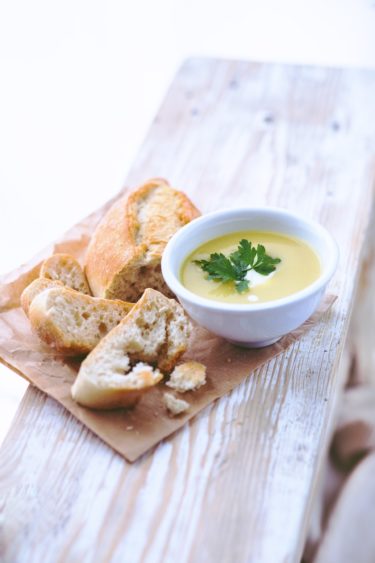“Help! I’m stress eating and I can’t stop!”
This is the general gist of most email enquiries I receive in my nutrition clinic now. During the first national lockdown, while many people faced furlough and redundancy, my self-referrals went through the roof. It seems that lockdown has contributed to, or exacerbated, many people’s poor relationship with food.
In times of extreme stress, our diets can be influenced in a number of ways – some of us eat more than usual, and some of us eat less than usual, while some of us somehow manage to keep things about the same. Our responses are hugely divided, depending on what lessons we were taught as children, what type of stress we are facing (acute or chronic, for example), our overall support network, and so on. There is no one ‘typical’ eating response to stress.
I spend a fair amount of my time in clinic gently reassuring people that eating in response to strong and/or difficult emotions is normal. To find comfort in food is normal. It’s what makes us human. After we are born, our first experience of eating is in the arms of a caregiver. This first meal is paired with feelings of comfort and safety, and in an ideal caregiving environment it continues that way.
Throughout our early development, physical affection is important, but it is not the complete picture – if we don’t feel that our emotions are listened to and accepted, we may learn to see them as ‘wrong’, and we may suppress them. Food is a very convenient method of achieving this: we physically feel warm and cosy when we feel full, and our minds and body are occupied with the task of eating. There’s a reason why we call it comfort food – it’s like a warm hug.
In the vast majority of cases, these lessons are not taught with malicious intent. I’m not here to play a blame game and point fingers at parents. We do the best we can with the resources we have available. Having said that, these lessons are often taught in a black and white way: food is either ‘good’ or ‘bad’; emotions are either ‘good’ or ‘bad’. It is completely devoid of necessary context, and when we lose context the outcome is rarely positive.

Of course, not all of us learn and internalise these messages as we grow up, and yet many of us are still finding ourselves turning to food during these difficult times. The weight gain some are experiencing as a result of this has even become a meme – the ‘quarantine 15’. None of us have ever had an experience like this before, it’s totally new, no blueprint, no guidance… we’re struggling.
I invite you to consider a possibility: By eating to soothe and comfort ourselves we have not failed. We haven’t been greedy. We are not bad people. We have given ourselves a small gesture of care and support during a time where we receive little from others. We have coped in ways that have been helpful and necessary.
Self-criticism and self-hatred is not the way forward. It doesn’t make any difference, at least not a positive difference. We have plenty of research showing that shame is an incredibly ineffective weight-loss strategy (in fact, it tends to drive weight gain), and rumination will only continue to bring those foods to the forefront of your mind, thereby increasing the likelihood of you craving them. I encourage people to accept what has happened, take the lessons from it that you can, and move on.
Also, the link between weight and covid19 is not clear-cut, particularly once confounding variables are taken into consideration (as they should be). Weight gain does not automatically increase someone’s risk of infection, hospitalisation, or death, and worrying about this is a thankless task. All those fitness pros, celebrity chefs, and Instagram gurus capitalising on our societal discomfort with weight gain are forgetting one big thing: weight stigma – social stigma due to higher body weight – is having a negative effect on people’s mood and binge eating. In my humble opinion, it also makes you an arsehole.
Self-compassion and being kind to ourselves is not about ‘letting ourselves off the hook’, it’s about being realistic with what we are able to achieve right now, and not beating ourselves up for it. To put it another way, you can beat a donkey with a stick, or bribe it with a carrot, but either way it makes it up the hill. The difference is that while the beaten donkey feels like crap, the bribed donkey gets a delicious carrot at the end. I’m all for the latter.
Over a million people worldwide have died of covid19 so far. You have survived. If a bit of stress-eating is what got you through, well done. You did what you needed to, and that’s ok.
References:
- Shame and weight gain: Vartanian LR, Porter AM. Weight stigma and eating behavior: A review of the literature. Appetite. 2016;102:3-14.
- Weight and covid19 in US Veterans.
- Weight stigma and comfort eating.
- Covid death source.


